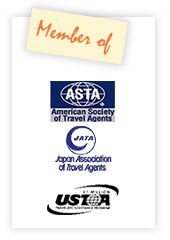Strong economic indicators...
| Tunisia's GNP and social indicators have risen steadily since independence. Per capita income has increased sevenfold, from $300 in 1956 to over $2,070 in 1997 to 3,580 T. Dinars in 2004. Tunisia has enjoyed an average growth rate of 5.4 percent since 1987, including 8.6 percent in 1992. Furthermore, even with the world debt crisis, Tunisia has managed to actually reduce its total debt burden. During the last few years, Tunisia has been frequently cited by international financial institutions as a "model for success" in economic structural adjustment. |
...have resulted from Tunisia's investment in human resources.
| Due to its limited natural resources, Tunisia has focused on developing its human resources: the bulk of the national budget has been allocated to education, health care, housing and social services, while a comparatively small amount was spent on defense. The private sector is encouraged to play a leading role in economic growth, and as a result, Tunisians have created a modern, diversified market-oriented economy based on an efficient agricultural sector, a growing manufacturing sector, and a thriving tourism industry. |
Today the country moves towards full economic union with Europe....
| Since 1988, Tunisia's economic policy has been resolutely outward-looking with the adoption of important reforms. The Association Agreement which Tunisia signed with the European Union, signed on July 17,1995, take full effect in 2008.
Liberalization measures and reforms have been introduced to promote economic efficiency and lay the groundwork for long-term growth. Improving the environment in which enterprises operate has been the main focus of government action. Today 87% of production prices and 80.5% of distribution prices. are regulated by market mechanisms. Tunisia has been a member of GATT since 1990. |
...and enjoys excellent financial health.
| Tunisia's economy is also characterized by a rigorous financial policy reflected through: |
- A gradual reduction in the budget deficit to 3.2 % of GDP in 1997.
- An increase in savings to 23.5 % of GNP in 1997
- Lower inflation: 3.7 % in 1997.
- Debt control: Tunisia has never rescheduled its debt and has always honored its financial obligations. Debt servicing totals less than 16.5 % of current export earnings.
|
Industry is thriving...
| Tunisia has an important industrial basis. New growth sectors, such as electronics, automotive components, chemicals and service activities, are rapidly developing alongside the more traditional ones.
Textiles, shoes and leather are the most important industries, followed by food processing, mechanical, electrical, building, chemicals and rubber industries. |
...and going global...
| Investors from the European Community, Japan and the United States. have been attracted by Tunisia's location and preferential trading relations with the European Community and the Arab Maghreb Union, as well as by the tax and customs concessions offered in the newly revised Investment Code.
Over a thousand manufacturing companies established as joint-ventures or foreign-owned, have reinforced the transfer of technology and know-how, contributing to the country's efforts at economic and social development. The service industries, notably those linked to industry, are also experiencing an important evolution. |
...thanks to highly-developed infrastructure...
| Tunisia has devoted considerable efforts to the establishment of an adequate infrastructure. The road network stretches over 31,000 km (18,600 miles) while the railway network totals 2,475 km (1,500 miles) and covers the country from North to South. The main national harbors accommodate over 5,400 vessels, an indication that 95% of Tunisian trade moves by sea. Daily flights connect Tunisian airports to more than 50 international destinations and regular domestic flights ensure connections between national airports. |
...and telecommunications
| Tunisia benefits from the most modern telecommunication systems, with an automated telephone network covering the whole country and linked to the international network and direct dialing. GSM service and Internet service are available and telex and fax are widely used. |
Tourism, or the practice of traveling for recreation, renewal, discovery and learning,...
| A phenomenon of modern times, tourism is the practice of traveling for recreation, renewal, discovery and learning. Tunisia has become a prime tourist destination thanks to its multiple advantages: its 3000 year history, its tolerant and friendly welcome, its location and climate, and its 1300 kilometers of beaches, While many are drawn merely by sun and sea and the quality accommodations and services that enable them to enjoy them, the new tourism of the 2000s offers much more: golf, scuba diving, yachting, horseback riding, thassalotherapy, and Saharan camping travel. Most important, the growing realm of cultural tourism invites today's traveler to focus on key aspect of Tunisia's long history, to engage in on-site archeological study, and to understand how this modern country has come to be. |
...continues to be a leading sector of the Tunisian economy...
| In Tunisia tourism contributes strongly to the economy, generating nearly a fifth of all receipts for goods and services. This is a result of efforts undertaken by the Tunisian government more than thirty years ago and carried on by private promoters. This has enabled Tunisia's hoteliers and hospitality professionals to develop world-class expertise.
Around 6 million tourists are attracted by Tunisia’s beaches and historical treasures from all over the world. Europeans, accounting for approximately 2.4 million visitors, continue to be the major customers and make up 59% of the total number of tourists. Increases were particularly perceptible among tourists from Germany (+19.8%), France (+8.3%) and Great Britain (+8.5%). Notable increases were also registered in the numbers of Belgian, Dutch, Austrian and Swiss tourists.
Visitors of other nationalities also increased, particularly those from North America (the US. and Canada) with an increase of about 20%. |
...with state-of-the-art facilities.
| There are more than 600 hotels in the country, totaling 155,000 beds and 75,000 rooms. Seven international airports, and eight passenger ports connect Tunisia to the United States and Europe. The capital city, Tunis, is a two-hour flight from Paris and London and a fifty- minute flight from Rome. Daily flights connect Tunisia to virtually all European, African and Middle Eastern destinations. |
Tunisians are committed to preserving their environmental resources for future generations.
| Tunisia's policy of environmental protection aims at preserving the ecological equilibrium, safeguarding natural and human resources, preventing and reducing the various forms of pollution, and reconciling the requirements of development with the imperatives of the environment, so as to protect the natural elements (air, water, soil and bio-diversity), improve the population's living conditions, and attenuate the risks threatening these resources. All these actions are part of the national strategy for sustainable development, and in accordance with the principles of the 1992 Rio Conference.
Tunisia's long term strategy begins with an action plan to create or reinforce the existing technical, financial, institutional and legal tools necessary for a rational and sustainable management of the environment. This long term action is accompanied by many public awareness campaigns and environmental education programs for youth. The institutional framework for environmental protection includes the Ministry of the Environment and Land Use Management and the agencies under its supervision: the National Agency for Environmental Protection (ANPE), the National Sanitation Authority (ONAS) and the Agency for Coastal Protection and Planning.
Source : ATCE (Agence Tunisienne de Communication Extérieure) |
|

